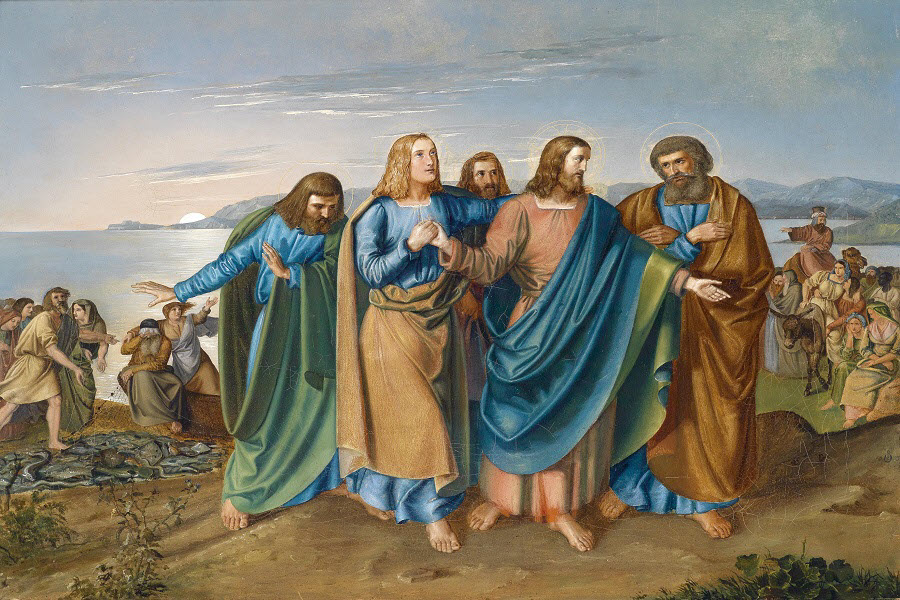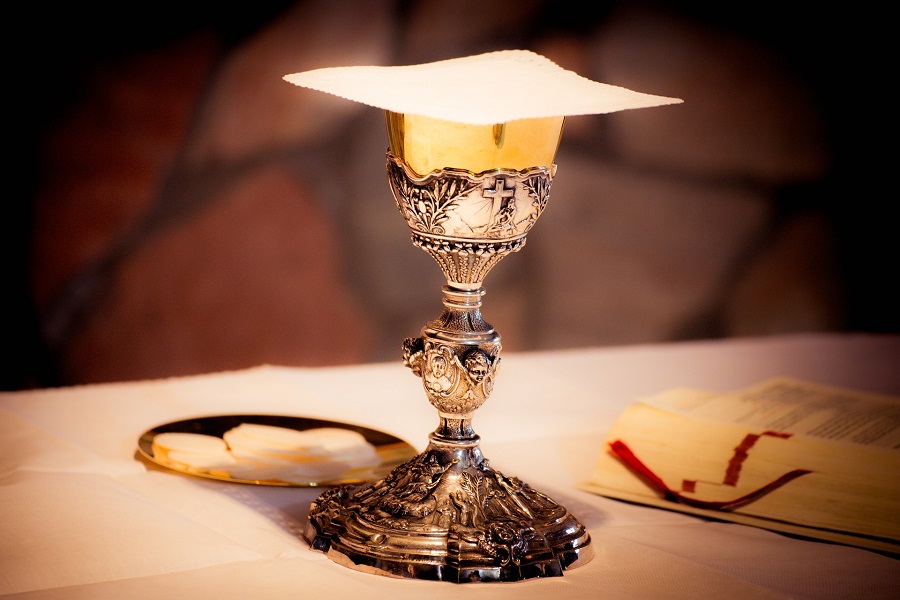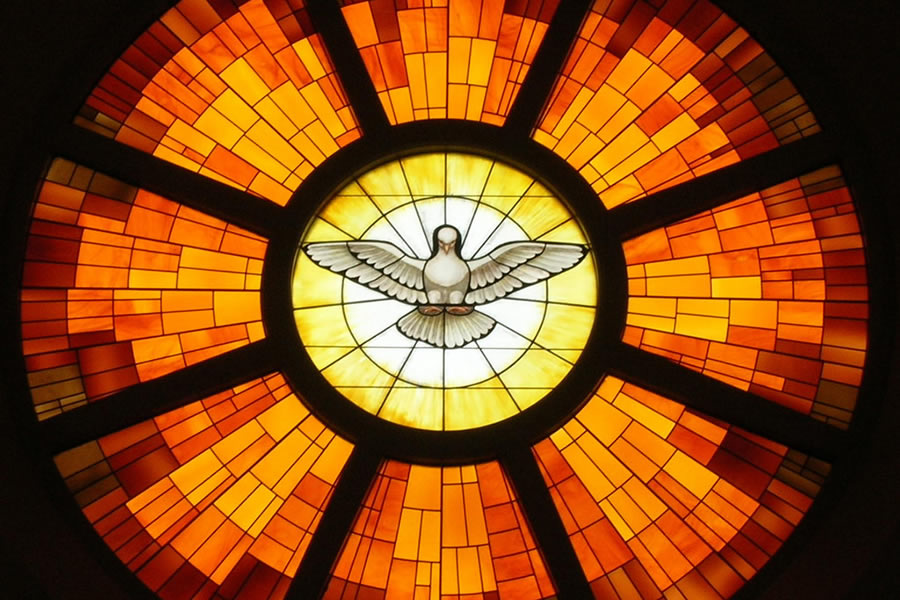
Discipleship's Cost
06-26-2022Weekly Reflection© J. S. Paluch CompanyIn today’s first reading, God tells the prophet Elijah to prepare Elisha to succeed him. Succeeding Elijah will be no easy task; he has spent his life facing threats from the kings he has confronted about their infidelity to the God of Israel. The psalm illustrates the emotional and spiritual distress that the prophets’ steadfast faithfulness to God brought them. Paul’s description of the Christian’s freedom from the law as opposed to “the desire of the flesh” puts this struggle at the very heart of Christian identity. The reading from Luke’s Gospel recounts Jesus’ decision to journey toward Jerusalem, where he knows he will meet his earthly fate. Following Jesus--like succeeding Elijah as prophet--will now become more difficult. Unlike his calls to the first disciples, Jesus encounters those who are not ready or are not strong enough to journey with him.

The Gift of the Eucharist
06-17-2022Weekly Reflection© J. S. Paluch CompanyToday we hear how Abram encounters Mel-chizedek, “king of Salem . . . and a priest of God Most High” (Genesis 14:18). Melchizedek appears nowhere else in scripture, but is nonetheless significant. Psalm 110 declares of the great King David, “You are a priest forever, in the line of Melchizedek,” a description later given (in the letter to the Hebrews) to Christ as High Priest. Early Christians saw in Melchizedek’s bread and wine the bread and wine of the Eucharist; Paul’s account of the Last Supper (in today’s second reading) is the oldest one in scripture. In the Gospel, Luke describes Jesus providing bread for a crowd in words similar to Paul’s, words still used by the Church: Jesus takes bread, gives thanks, breaks it. Together, these three readings reveal how Christian priesthood, Christ’s Real Presence, and the call to serve those in need are all found in the gift of the Eucharist.

Biblical Roots for the Trinity
06-12-2022Weekly Reflection© J. S. Paluch CompanyToday’s readings show some biblical roots of what Christians would later call the Trinity. Proverbs showcases the role of Wisdom in the work of creation, portrayed as a reality outside of God but integrated into God’s work of forming the heavens and the earth. We join the psalmist in sharing Wisdom’s delight in God’s handiwork: “O Lord, our God, how wonderful your name in all the earth” (Psalm 8:2). In his letter to the Romans, Paul writes of peace with God through Jesus, and the love of God received through the Holy Spirit, distinguishing God, Jesus, and the Holy Spirit while also displaying their abiding unity. Finally, in the farewell discourse from John’s Gospel, Jesus--who had earlier spoken of himself as Son of the Father -- promises his friends that they will receive the Spirit of truth that will teach and guide them after his departure.

The Spirit’s Active Power
06-05-2022Weekly Reflection© J. S. Paluch CompanyThe mystery of the Trinity refers to one God in three persons. We frequently acknowledge Jesus as “the second person of the Trinity,” but referring also to the Spirit as a “person” comes less natural-ly. In religious art, the Holy Spirit often appears as a dove or, as in today’s reading from the Acts of the Apostles, tongues of fire. Much rarer are imag-es of the Spirit as a “person” in recognizable hu-man form. Today’s readings do not settle the issue of how to picture the Spirit, but they certainly give shape to the Spirit’s active power in the world and in each human heart. In Acts, the Spirit enables people to speak and understand a variety of lan-guages. Paul’s letter to the Corinthians praises the Spirit for all kinds of spiritual gifts, services, and “workings.” Finally, in John’s Gospel, Jesus calls the Spirit our Advocate and our divine teacher.